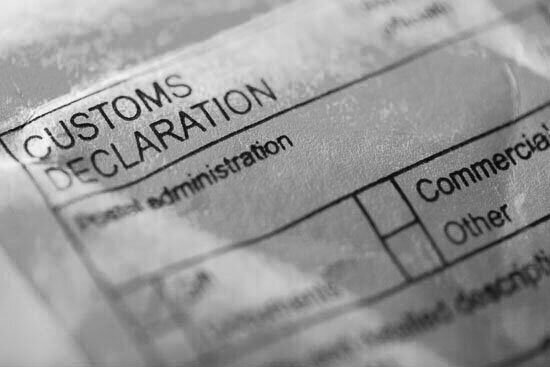Customs Law Lawyer in Paris
Law firm specialized in customs law in Paris
Regere is a law firm specialized in customs law, assisting clients in disputes with the Customs Administration. An experienced customs lawyer supports you in the event of an inspection initiated by customs officers within your company and provides guidance throughout the procedures launched by the customs authorities. The firm offers its expertise to challenge seizures and customs reports, and to defend your interests throughout all customs proceedings.
CUSTOMS LAWYER
- Is your merchandise being held by customs?
- Have you been stopped by customs with undeclared cash, prohibited goods, or goods subject to authorization?
- Have you been summoned for a customs interview?
- Have you been placed in customs detention?
- Have you received an email or letter from customs requesting documents?
- Do you wish to request the return of goods seized by customs?
Our firm, specialized in customs law, can assist you throughout these procedures.
CUSTOMS INSPECTIONS
Customs officers have the authority to conduct inspections either at the time of customs clearance (known as ex ante control) or afterward (ex post control).
To exercise this authority, customs officers are granted extensive powers, which include the right to search individuals and goods, the right to request information, the right to access professional premises, the right to seize goods, and, where applicable, the right to conduct residential searches.
RIGHT OF SEARCH
(Former Article 60, now Articles 60 to 60-10 of the Customs Code)
See detailed article below.
RIGHT TO REQUEST INFORMATION
(Article 65 of the Customs Code)
Customs officers may require individuals or legal entities engaged in economic activities to provide any documents relevant to their mission. Increasingly, this right is exercised electronically, often via a simple email request.
Failure to provide the requested documents, providing incomplete information, or the absence of proper recordkeeping is punishable by a fine of €3,700.
RIGHT OF ACCESS TO PROFESSIONAL PREMISES
(Article 63 ter of the Customs Code)
As part of ex post controls, customs officers are authorized to access business premises, warehouses, and professional vehicles, including their cargo.
RIGHT TO CONDUCT RESIDENTIAL SEARCHES
(Article 64 of the Customs Code)
The right to conduct residential searches has been aligned with the criminal procedure rules governing searches under the French Code of Criminal Procedure. It now follows a similar legal framework.

CUSTOMS CONTROL OF UNDECLARED CAPITAL TRANSFERS: CUSTOMS LITIGATION IN CROSS-BORDER FINANCIAL RELATIONS
A DECLARATION REQUIREMENT WHEN ENTERING OR LEAVING FRENCH TERRITORY
Any individual transferring funds, securities, or valuables—including those referred to in Article L. 561-13 of the French Monetary and Financial Code—as well as payment methods defined in Law No. 2013-100 of January 28, 2013, or gold, to or from another EU Member State without going through a credit institution, electronic money institution, payment institution, or any other authorized entity (Article L. 518-1), must file a declaration under conditions set by decree.
Any cash, securities, or valuables amounting to €10,000 or more (or the equivalent in foreign currency), physically transported by an individual, must be declared in advance to customs.
This requirement is part of the fight against money laundering, especially from illicit activities such as drug trafficking.
A declaration must be filed for each transfer, except for amounts below the €10,000 threshold. (Beware: even pocket cash counts!)
A declaration is also required when the individual is carrying the funds on behalf of a third party.
APPLICABLE TO TRANSFERS TO/FROM BOTH THIRD COUNTRIES AND EU MEMBER STATES
A declaration must be submitted when entering or exiting France, regardless of whether the destination or origin is an EU Member State or a third country.
Declarations may be submitted using Cerfa Form No. 13426 or online via the DALIA platform: https://www.douane.gouv.fr/dalia
PENALTIES FOR FAILURE TO DECLARE
Failure to declare is an administrative customs offence, regardless of intent.
Declarations over €10,000 must be accurate and complete. Declarations over €50,000 must be accompanied by supporting documents.
Sanctions are severe:
A customs fine equal to 50% of the undeclared amount;
Seizure and confiscation of the undeclared funds, even if the person is ultimately not convicted of a customs offence;
Potential money laundering charges if the undeclared amount over €10,000 is found to be the proceeds of a crime or offence.
CONTROL OF CROSS-BORDER WASTE SHIPMENTS
Cross-border movements of waste are regulated by specific rules enforced by the National Office for Cross-Border Waste Transfers (PNTTD).
The Basel Convention of March 22, 1989, regulates the international transfer of hazardous and other waste, and was ratified by the European Union via Regulation (EC) No. 1013/2006, along with its subsequent amendments.
Regulations vary depending on:
The nature and hazard classification of the waste;
The purpose of the transfer (recovery or disposal);
The origin, destination, and route taken.
Customs authorities monitor exports, imports, and the transit of waste subject to prior notification and consent procedures. They also enforce bans on certain exports outside the EU and supervise rules regarding green list waste shipped for recovery to non-OECD countries.
All accompanying documents must be presented to customs upon entry or exit from the EU and upon request within the national territory.
LIABILITY OF CUSTOMS REPRESENTATIVES UNDER THE NEW EU DEFINITION OF EXPORTER
As of October 1, 2020, the new definition of « exporter » under Commission Delegated Regulation 2018/1063 (amending Article 1(19) of Regulation (EU) 2015/2446) is in effect.
Under this definition, an exporter must be established in the EU customs territory. The former requirement of having a sales contract with a third-country recipient is no longer applicable.
This requirement does not apply to re-exports of non-Union goods (Article 270(1) of the Union Customs Code).
Per Articles 5(31) and 5(32) of the UCC, being « established » in the EU means having:
A registered office,
A central administration, or
A permanent establishment (i.e. a fixed place of business with sufficient human and technical resources to carry out customs operations fully or partially).
This establishment requirement is now a mandatory condition for being recognized as an exporter under EU customs law.
As a result, non-EU companies that do not meet this criterion can no longer be declared as exporters. Instead, they must appoint an EU-based entity to act on their behalf.
This shift transfers full customs liability to the designated exporter—typically a customs representative. If audited, these representatives assume all related legal risks.
Therefore, it is crucial to secure contractual arrangements and ensure proper indemnities are in place to protect against any customs sanctions imposed on the designated exporter.
RIGHT OF SEARCH: NEW ARTICLES 60 TO 60-10 OF THE CUSTOMS CODE
The former Article 60 of the French Customs Code has now been divided into eleven new provisions, Articles 60 to 60-10.
These provisions, introduced by Law No. 2023-610 of July 18, 2023, aim to strengthen the powers of customs authorities in the face of emerging threats. They entered into force on July 20, 2023, just before the effective repeal of the former Article 60 as set by the Constitutional Council.
To recall, the original Article 60—unchanged since the 1948 reform of the Customs Code—was declared unconstitutional by Decision No. 2022-1010 QPC of September 22, 2022. However, the Council postponed its repeal until September 1, 2023.
As a cornerstone of customs law, and of the customs officers’ right of search, the repeal provided an opportunity for legislators to reframe and strengthen the legal framework available to customs for combating fraud.
Law No. 2023-610 marks the end of a vague and jurisprudence-dependent legal regime, bringing much-needed legal clarity to customs inspection powers.
The legislator has now incorporated the guarantees laid out both by the Criminal Chamber of the Court of Cassation and the Constitutional Council.
Details of these provisions can be found in the official circular:
“Circular presenting the new Articles 60 to 60-10 of the Customs Code governing the right to search goods, means of transport, and persons by customs officers”
🔗 Read the circular (in French)
